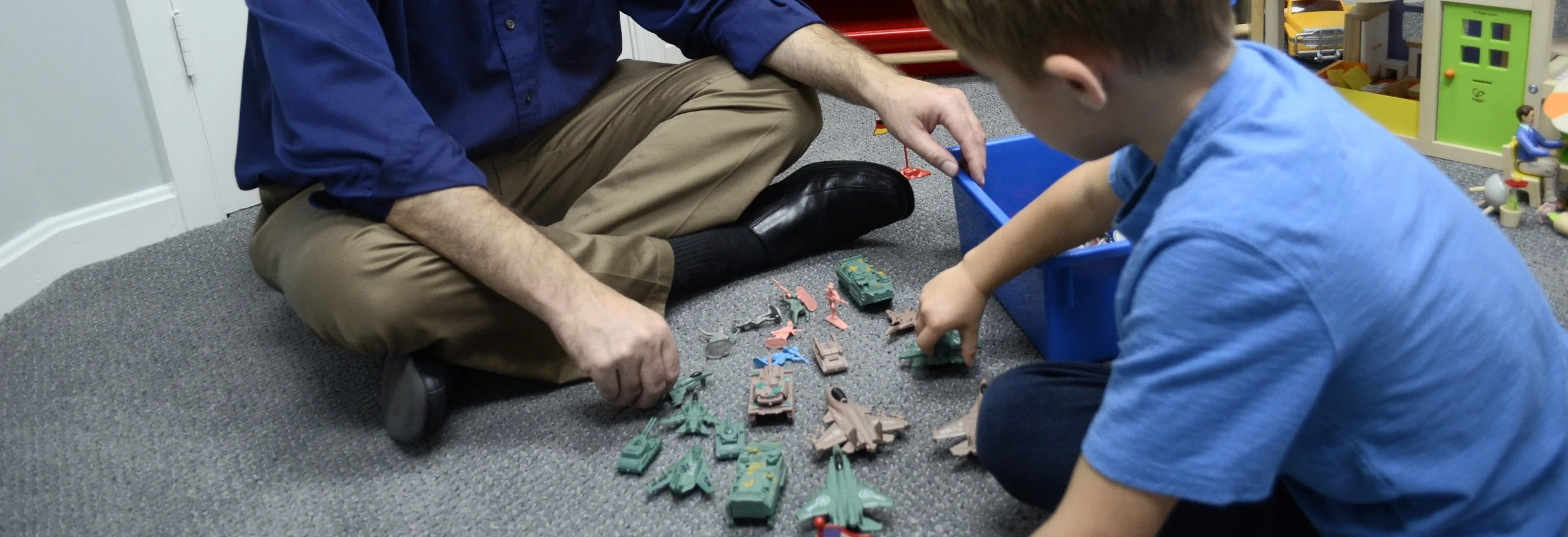Getting to know your Child and Family
Below is a brief description of how we work with children and parents from our initial phone call to engaging in treatment.
Initial phone call
In our first phone call, we’ll listen to your current concerns about your child and ask some questions to make sure we sure we are the right fit for your child and family.
We’ll review with you our assessment and treatment process and the fees for our services. If we decide to work together, we’ll schedule an initial parent consultation meeting as soon as possible.
Assessment framework
Child development and family functioning are complex. Who we are and what we do are the result of a ongoing, ever-evolving dynamic interaction between our biology and our environment.
Our genes, brain, nervous system, and the other parts of our body influence our thinking & personality, how we take in information, how we respond to other people’s emotions, determine our activity level, and many other aspects of our behavior.
Most importantly, our social environment strongly affects child development and functioning, and includes parents, family members, child-care providers, and teachers.
By the time we first meet your child, this interplay of biology and environment has involved thousands and thousands of experiences and interactions with the people and contexts in her life. We see this in a child’s temperament, tendencies and preferences; their patterns of behavior; relationships’ successes and challenges; expectations of other people; self-regulation abilities; and her ideas about herself (self-concept, self-esteem, self-efficacy).
In order to get a good working understanding of all these different factors, we have a recommended assessment process. This will be tailored to you and your child’s particular concerns and needs.
Assessment process
Following the initial phone consultation, we will schedule the first of three or four assessment sessions where our goal is to learn about the nature of your concerns for your child and to understand them in the context of your child’s life and history. The first session (intake) will be with parents/guardians only and lasts 90 minutes.
Subsequent assessment sessions are 50 minutes and will be planned collaboratively with you. They can include a family session with all family members, an individual session with your child, and, when appropriate, a school visit. With parent/guardian permission, additional assessment can include phone consultation with school personnel or other treating professionals as well as the use of behavioral questionnaires.
At the conclusion of this assessment phase, we will meet again with the parents/guardians alone for a feedback session (90 minutes) to share our ideas about the psychological dynamics of the concerns, strengths of the child and family, diagnostic impressions (when relevant), recommendations, identifiable treatment goals, and a rationale for a course of therapy to work towards these goals.
Please note that written assessment summaries are not typically provided given the sensitive and complex nature of psychological functioning; however, one can be provided upon request. Its cost is based on the time required to complete the document.
Treatment
Following the feedback session, therapy sessions with you and/or your child will be scheduled as mutually agreed upon to address the treatment goals we discussed.
Sessions are 50 minutes. Very often, these are scheduled weekly with a given time considered “blocked” or scheduled regularly for your child and/or family. You and your therapist will review progress routinely and adapt the treatment plan collaboratively.
If you wish to change the frequency of sessions, the emphasis of treatment, or if you are considering ending therapy, we strongly encourage you to discuss your concerns in a parent meeting with your therapist so that your concerns can be understood and addressed.
If you decide to end treatment for your child, especially after a longer period of time, we will likely request several termination sessions with your child to support them with processing their thoughts and feelings about the ending and for the opportunity to have a positive experience of saying good-bye and celebrating successes.


